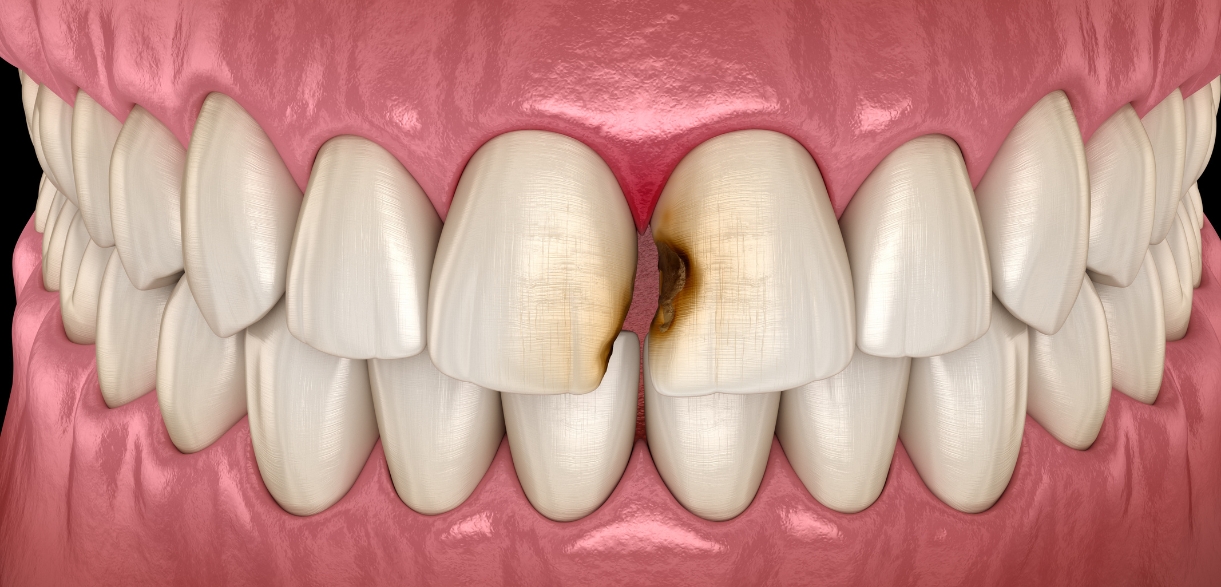New Patients Welcome!

Tooth sensitivity strikes without warning. Few believe it’s caused by food. Patients blame the brush or genetics, not knowing diet is a sneaky culprit. Interestingly, sour foods or sweet drinks quietly erode enamel and lead to pain. A trustworthy dentist speaks about how diet quietly causes tooth sensitivity daily.
What Is Tooth Sensitivity?
Tooth sensitivity produces pain when teeth come into contact with hot, cold, sweet, or acidic substances. Common symptoms include stinging pain with the ingestion of iced water or hot soup.
Triggers can also be citrus, sugar, cold winds, or even brushing. According to professional dentists, sensitivity often begins small but progresses without awareness in diet.
Common Dietary Triggers for Tooth Sensitivity
Acidic Foods and Drinks
Citrus fruits, soda, vinegar, and wine erode enamel through repeated use. Acids weaken the protective covering of the tooth and allow sensations to travel directly into nerves.
Sweets, soda, energy drinks, and sweet coffee feed pathogenic oral bacteria. Such bacteria produce acids that speed up enamel erosion and decay.
Hot and Cold Extremes
Extremely hot coffee or extremely cold smoothies cause teeth to expand and contract. This can stress enamel and form micro-cracks that fuel sensitivity.
As per a qualified dentist in West Palm Beach, frequent snacking on acidic or sweet foods increases the risk of sensitivity tremendously.
How Enamel Erosion Occurs?
Enamel, the outer layer of a tooth, shields the inner ones from wear or pain. The minerals in acidic foods can wear down the enamel and erode the cover in the process. Sugar nourishes bacteria, which in turn create acid as a waste product.
This process occurs rapidly and without any warning, and enamel is rapidly worn away. You can think of enamel as if it were a protective layer that weakens every time it’s bathed in acid.
Once lost, enamel cannot be regenerated. Even well-appearing teeth can become sensitive when the enamel thins on a microscopic level beneath their surface.
Foods That Prevent Tooth Sensitivity
Certain foods naturally rebuild and protect enamel.
Dairy Foods
Milk, cheese, and yogurt provide calcium and phosphates to remineralize teeth.
Leafy Greens
Spinach, kale, and broccoli are minerals. They strengthen enamel and benefit gum health.
Crunchy Vegetables and Fruits
Carrots, apples, and celery are cleansing to teeth and encourage saliva production.
Hydration Counts
Water intake is likely to eliminate acids and keep the mouth’s pH neutral.
Neutralizing Acids
Chewing sugar-free gum after meals stimulates saliva. It helps neutralize harmful acids quickly.
Dentist-Recommended Diet Tips for Sensitive Teeth
Meal Timing
Avoid grazing all day. Give saliva time to repair enamel between meals.
Use a Straw
Sip acidic drinks through a straw to limit contact with teeth.
Rinse Your Mouth
After acidic or sugary foods, rinse with water instead of brushing immediately.
Wait Before Brushing
Wait 30 minutes after acidic meals to prevent brushing away softened enamel.
Fluoride is a must
You can use fluoride-containing toothpaste or rinses to fortify enamel every day.
It is to be stated that small daily habits make a big difference in protecting sensitive teeth. Tooth sensitivity is influenced directly by diet more than most individuals appreciate.
Learning about triggers and preventive foods can enhance comfort and oral health rapidly. If you need assistance with managing sensitive teeth, reach out to us today.




